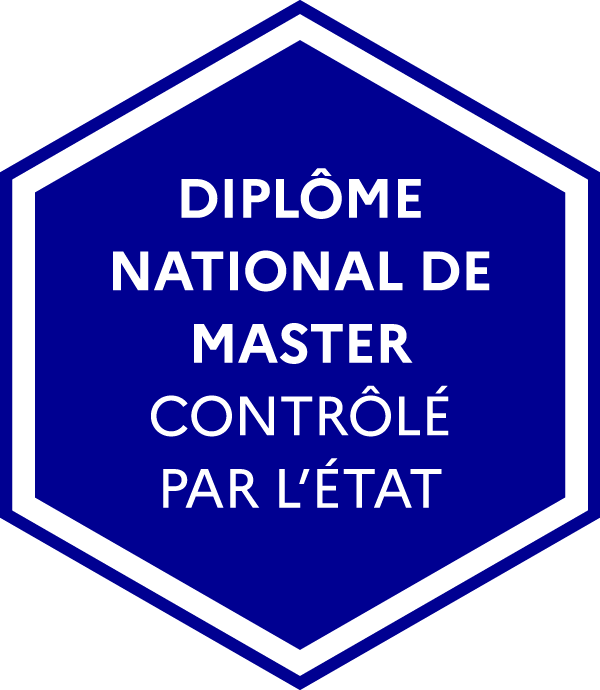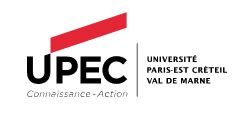Master's degree Mathematics and computer science


Entry requirements
M1 in Mathematics or Computer Science, plus L2-level skills in the other discipline.
Benefits of the program
This Master’s is unique in France, covering both mathematics and computer science, with requirements in both disciplines. It is based on the teaching team's joint extensive experience, developed in the prestigious Bézout Labex.
Acquired skills
Master's level in areas at the interface of mathematics and computer science: optimisation, analysis, geometry, combinatorics and machine learning.
Development of research skills: autonomy, personal work on specialised themes, literature review.
Advanced programming skills oriented towards applications in mathematics and computer science.
International
Bézout grants are awarded to a number of international students. English-speaking students are welcome.
Capacities
20
Course venue
Your future career
Students can pursue further studies with a PhD in mathematics or computer science.
Jobs in R&D in areas at the interface of the two disciplines, typically optimisation and machine learning.
Classes in machine learning, in particular, promote the development of professional skills that are highly sought after in the private sector, to make graduates immediately operational.
Professional integration
Students can pursue further studies with a PhD in mathematics or computer science. Jobs in R&D in areas at the interface of the two disciplines, typically optimisation and data science. Classes in machine learning, in particular, promote the development of professional skills that are highly sought after in the private sector, to make graduates operational.
Study objectives
Students are trained to be able to continue with a PhD in mathematics or computer science, in one of the many areas at the interface of the two disciplines. Emphasis is also placed on certain cutting-edge skills that are highly sought after in the private sector, like machine learning and optimisation, to ensure students have a good grasp of these areas and can find employment straight after graduating.
Major thematics of study
Mathematics and computer science: discrete and continuous optimisation, algorithms and combinatorics, geometry, data science, large random matrices, random graphs.
Calendar
Foundation classes for one month, then ten weeks of core modules, then eight weeks of specialisation, and finally three to six weeks of work placement, starting from April.
Semester 3
| Courses | ECTS | CM | TD | TP |
|---|---|---|---|---|
|
Socle mathématique
ANGLAIS / ENGLISH | 6 | 16h | ||
|
Socle informatique
ANGLAIS / ENGLISH | 6 | 16h | ||
|
Optimisation discrète et continue
ANGLAIS / ENGLISH | 6 | 30h | ||
| UE OPTIONNELLES 3 UE A 6 ECTS A VALIDER | 24 | |||
|
Optimisation discrète et continue
Discrete optimization : Min-max results in combinatorial optimization provide elegant mathematical statements, are often related to the existence of efficient algorithms, and illustrate well the power of duality in optimization. The course will rely on concrete examples taken from industry. Plan of the course: Discrete optimization in bipartite graphs. Chains and antichains in posets. Chordal graphs. Perfect graphs. Lovász theta function. Continuous optimization : The course will cover over theoretic and algorithmic aspects of convex optimization in a finite-dimensional setting. Plan of the course: Linear programming, the simplex algorithm, totally unimodular matrices, convex fuctions, semi-definite programming, convex programming, Karush-Kuhn-Tucker conditions. Weak and strong duality, Farkas Lemma. Sparse solutions via L1 penalization. LASSO method.
Teaching language ANGLAIS / ENGLISH | 6 | 20h | 30h | |
|
Optimisation continue
| 3 | 10h | 15h | |
|
Optimisation discrète
| 3 | 10h | 15h | |
|
Géométrie et Combinatoire
Probabilistic algorithms. This course is about randomized algorithms, which relies on randomness to speed up their running time. The methods: Las Vegas and Monte Carlo algorithmes, complexity classes for randomized algorithms, lower bounds: Yao’s Minimax principle, some probabilistic settings useful in algorithms: coupon collector, birthday problem, …Applications: analysis of Quicksort and Quickselect algorithms, stable marriage problem, probabilistic data structures (hash tables, skip lists, treaps, …), probabilistic counting, graph algorithms. Combinatorics. The lectures on enumerative combinatorics will consist in the study of classical objects: permutations, trees, partitions, parking functions, …- classical sequences: factorial, Catalan, Schroder, …- classical methods: bijections, group actions, induction, generating series.The lectures will be heavily based on the study of various examples, some very easy and others trickier.
Teaching language ANGLAIS / ENGLISH | 6 | 24h | 24h | |
|
Géométrie
| 3 | 12h | 12h | |
|
Combinatoire
| 3 | 12h | 12h | |
|
Science des Données
Un cours des outils fondamentaux pour l'analyse statistique des données et un cours pour les outils informatiques associés
Teaching language ANGLAIS / ENGLISH | 6 | 24h | 24h | |
|
Fondements mathématiques des sciences des données
| 3 | 12h | 12h | |
|
Fondements informatiques des sciences des données
| 3 | 12h | 12h | |
|
UE libre
| 6 | 20h | 30h |
Semester 4
| Courses | ECTS | CM | TD | TP |
|---|---|---|---|---|
|
Stage
| 18 | |||
| UE OPTIONNELLES 2 UE A 6 ECTS A VALIDER | 18 | |||
|
Sciences de données avancées
Machine learning. OBJECTIVES: Understanding of the principal Artificial Intelligence algorithms: machine & deep learning. Introduction to the optimization and the stochastic approximation algorithms for learning. Building predictive methods on unstructured datasets such as text data. PROGRAM: Introduction to statistical learning: theoretical and empirical risk, Bias-Variance equilibrium, overfitting; Aggregating methods: random forests; bagging and boosting methods; Kernels methods and Support Vector machine algorithms; Convexification, regularization and penalization technics: Lasso, Ridge, elastic net.. ; Deep learning algorithms: feedforward, convolutional and recurrent networks, dropout regularization; Prediction with unstructured text data: bagofwords, word2vec; Introduction to reinforcement learning.
Teaching language ANGLAIS / ENGLISH | 6 | 16h | 16h | |
|
Géométrie avancée
The objective is to present the theory of large dense graphs, in their analytical, probabilistic and combinatorics aspects. Program : introduction and reminders on finite graphs ; definition of a graphon, graphon as a generator of dense random graphs ; properties of the space of graphons, cut-distance ; convergence of large graphs to a graphon ; sampled graphs; Inequalities of concentration and convergence ; application: classical combinatorial inequalities ; application: epidemic on a graphon, graphs biased by size ; application: degree function, exponential model
Teaching language ANGLAIS / ENGLISH | 6 | 16h | 16h | |
|
Combinatoire algébrique et calcul formel
Operads in combinatorics: Informally, an operad is a space of operations having one output and several inputs that can be composed. We present some elementary objects of algebraic combinatorics: combinatorial classes and algebras. We introduce (non-symmetric) operads and study some tools allowing to establish presentations by generators and relations of operads. Koszul duality and generalizations: colored operads, symmetric operads, and pros. We shall also explain how the theory of operads offers a tool to obtain enumerative results. Algebraic combinatorics : study of classical symmetric functions and discussion about representation theory, noncommutative symmetric functions (NCSF), the definition of Hopf algebras, the dual algebra of NCSF, quasi-symmetric functions, the modern generalizations of those algebras and use of all these algebraic properties (transition matrices, expressions in various bases, morphisms of Hopf algebras) to solve (classical) combinatorial questions.
Teaching language ANGLAIS / ENGLISH | 6 | 16h | 16h |
Marie-Monique RIBON
Partners

CERMICS

